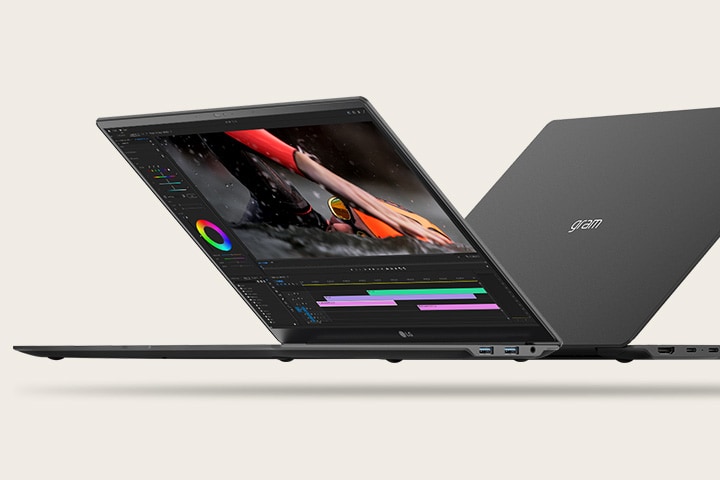The Enduring Relevance of Tablets in 2025
Look, everyone’s glued to their phones these days, right? You’d think tablets would just fade into the background, but nope—they’re still kicking, and honestly, they’re doing better than ever. Tablets aren’t just clinging on for dear life; they’re out here carving out their lane. They’re smack dab in the middle—bigger than your phone, not as heavy-duty as your laptop, but that’s exactly what makes ‘em so handy. People want that sweet spot: a big enough screen to spree Netflix or crank out emails, but without lugging around a brick.
And get this—the tablet biz is booming. We’re talking numbers that’d make your eyes pop. By 2025, the market’s supposed to hit, like, $100 billion, and that’s not even its final form. Fast forward to 2033, and we’re inching close to $127 billion (I know, wild). That’s a juicy 12.8% growth every year, which is nothing to sneeze at. The U.S. alone? $15.6 billion by 2025. So yeah, tablets aren’t just surviving—they’re thriving. People are snapping them up for work, school, streaming, doodling—pretty much anything you can throw at a screen. Not bad for a gadget everyone thought would be obsolete by now.
Transformative Trends Shaping Tablet Innovation
Tablets are honestly having a moment right now, and it’s wild to see how fast they’re morphing into something way beyond just a bigger phone. People used to joke about them being “giant smartphones,” but—yeah, not true anymore. There’s some pretty cool stuff happening, and if you’re into tech, it’s honestly kind of addictive to keep up.
Hybrid & Convertible Tablets: The “Why Not Both?” Crowd
Let’s be real: 2-in-1 tablets are everywhere. You know, the ones that flip, fold, or just snap onto a keyboard like some sort of Transformer. It’s like—why settle for just a tablet or just a laptop when you can have both? The detachable models are my personal favorite. Super chill for streaming on the couch, then—boom—keyboard’s on, and you’re getting stuff done. Perfect for students, people who travel, or honestly, anyone sick of lugging around a giant laptop all the time. They’re efficient, the battery lasts ages, and you usually don’t have to sell a kidney to buy one. Win-win.
Screens That’ll Spoil You for Anything Else
Okay, can we talk about the screens on these things? Some of them are so bright and crisp, it’s like your eyeballs just leveled up. Whether you’re watching Netflix, gaming, or pretending to work on a “graphic design project,” the colors are nuts. And now with foldable screens? Wild. You pop it open for a full-blown canvas, then fold it up and toss it in your bag. Tablet or phone or laptop? Who cares—it’s all of them mashed together. Tech wizards are out here blurring every line.
AI Taking Over (But in a Good Way)
AI isn’t just for creepy robots anymore—it’s making tablets smarter than ever. Think about it: your tablet learns your habits, adjusts battery settings on the fly, charges itself smarter, and even optimizes apps so they don’t lag or drain juice. It’s like having a little tech butler who knows what you want. And with all the new processors and beefed-up RAM, you can do stuff like 3D modeling or hardcore video editing without your tablet melting into a puddle. Tablets are straight-up gunning for the pro market now—honestly, laptops better watch their backs.
So, yeah, if you haven’t checked out tablets lately, you might be in for a surprise. They’re not just for scrolling social media in bed anymore.
Alright, let’s get real about what’s cool with tablets these days.
First off—5G. It’s not just some buzzword tech bros throw around at conferences. Tablets with 5G are blazing fast. Like, you blink and your download is done. Video calls? Smooth. Streaming? Zero lag. Cloud stuff? Super slick. Suddenly, you can actually work from that random coffee shop with the wobbly tables and terrible indie playlists. And honestly, once you add AR and VR into the mix, things get wild. Yeah, sure, you can play with AR on your phone, but try it on a tablet and it’s like, whoa. Your screen’s big enough that you don’t have to squint or poke at tiny icons. It’s next-level for gaming, learning, or just messing around with virtual stuff that makes you feel like Tony Stark.
Sustainability and Eco-Friendly Design
Now, about tablets not destroying the planet—finally, right? Companies are (slowly) realizing nobody wants to toss out a chunk of plastic and metal every year. So, you’re seeing more recycled parts, smarter processors that don’t guzzle battery, and pieces you can actually swap out when they break. It’s not perfect, but hey, it’s a start. People care, and brands have to act like they care too, or they’re toast.
Tablets vs. Smartphones: A Complementary Relationship
Let’s talk tablets vs. smartphones. That’s not a real fight anymore. Phones are for quick hits—texts, calls, doomscrolling. Tablets? That’s where you get stuff done. Or zone out with Netflix, I’m not judging. They’re like the chill big sibling who doesn’t try to do everything at once, but crushes the stuff they’re good at.
The Advantage of Screen Real Estate
Screen size is the obvious one. Have you ever tried editing a doc on your phone? It’s pain. Tablets are a sweet spot—not as clunky as a laptop, but you have space to work, draw, read, or juggle a bunch of apps at once. Students get it—note-taking, multitasking, sketching out ideas, all of it just works better when your screen isn’t the size of a pop tart.
So yeah, tablets aren’t replacing your phone, but they’re not fighting for the same spotlight either. They’re just… doing their own thing, and honestly, crushing it lately.

Productivity and Creativity Unleashed
Tablets equipped with stylus support and removable keyboards transform into powerful productivity tools. They facilitate tasks like digital art, precise note-taking, document editing, and professional presentations with an ease that is challenging on a smartphone’s smaller interface. This makes them indispensable for creatives, remote workers, and academics who require more than just basic communication features.
Battery Life for Extended Use
Generally, tablets boast longer battery lives compared to smartphones, making them more suitable for extended work sessions, long commutes, or prolonged entertainment. This endurance is crucial for users who rely on their devices for an entire workday or during travel without constant access to charging points.
Market Dynamics and Key Players
The tablet market is characterized by robust competition and evolving market shares. Apple remains a dominant leader with its iPad lineup, demonstrating strong year-on-year growth. Samsung, Xiaomi, and Lenovo are also significant players, particularly in emerging markets, driving innovation and offering diverse device options across various price points.
The detachable tablet segment is particularly strong, holding approximately 33.7% of the market share in 2025 due to its hybrid functionality. While Apple’s iOS has historically been prominent, Android is projected to capture a significant market share, estimated at 51.7% in 2025, largely due to its widespread availability across numerous brands and more accessible price points. North America continues to be a dominant regional market, though the Asia Pacific region is expected to drive substantial future growth.
Overcoming Challenges and Future Prospects
Despite their advantages, tablets face competition from large-screen smartphones and the perception among some consumers that they are primarily entertainment devices. However, manufacturers are actively addressing these challenges by focusing on cost-efficiency, expanding hybrid models, and emphasizing business-oriented features.
The future of tablets is bright, driven by continuous innovation. We can expect deeper integration of AI for personalized learning and adaptive interfaces, further expansion of AR/VR applications, and a stronger commitment to sustainable design practices. As the demand for remote work, online education, and digital content consumption continues to rise, tablets are poised to remain essential tools in our digital lives.
Conclusion: Tablets Evolving to Lead
Alright, let’s cut the corporate jargon. Tablets aren’t just hanging on for dear life in a world obsessed with smartphones—they’re strutting their stuff and leveling up. Big screens, beefy performance, AI tricks, you name it, they’ve got it. Honestly, tablets have found their sweet spot—perfect for cranking out work, spree-watching shows, or, I dunno, pretending you’re productive in a coffee shop. They’ve become the go-to sidekick for stuff your phone just can’t handle (no offense to your phone, but c’mon).
Tech keeps moving fast, and tablets are right there in the mix, tagging along with smartphones but doing their own thing. It’s like they’re siblings who finally stopped fighting and figured out how to share the WiFi.
Thinking about jumping on the tablet bandwagon? Now’s a pretty solid time. Whether you’re a student dodging textbooks, a pro who lives for multitasking, or just someone who wants Netflix to look extra fancy, there’s a tablet out there screaming your name. Check out the wild new designs, all this AI-powered magic, and screens so sharp you’ll squint. Go ahead—take a scroll through the latest models. Who knows, your new favorite gadget might be waiting to crash your next Zoom call.
(FAQ)
Are tablets still relevant in 2025 with large smartphones available?
Yes, tablets are highly relevant. While smartphones are convenient, tablets offer larger screens, enhanced productivity features (like stylus support and detachable keyboards), longer battery life, and specialized capabilities for tasks like graphic design, extensive reading, and immersive entertainment that smartphones cannot match.
What are the main innovations driving tablet growth?
Key innovations include the rise of hybrid and convertible designs, advanced foldable and flexible displays, integration of AI for personalized experiences and battery optimization, faster processors and increased RAM, 5G connectivity, and growing applications in augmented reality (AR) and virtual reality (VR).
How are tablets being used in professional settings?
In professional settings, tablets are increasingly replacing traditional PCs for specific roles due to their portability, cost-effectiveness, and ability to run business applications. They are used for presentations, detailed note-taking with styluses, remote work, digital signage, and mobile data collection.
Which companies are leading the tablet market in 2025?
Apple continues to lead the tablet market with its iPad lineup. Samsung is a strong contender, with Xiaomi and Lenovo also gaining significant market share, particularly in emerging markets, offering a wide range of devices.
What role does AI play in the future of tablets?
AI is expected to significantly enhance tablet functionality through features like AI-tuned charging routines, self-tuning batteries that adapt to user patterns, personalized user interfaces, and improved performance optimization for complex tasks.
I'm Salim, the creator and tech enthusiast behind this website. My passion for technology has been a lifelong journey, fueled by a deep curiosity about how things work and a desire to explore the latest gadgets and innovations that shape our world.





